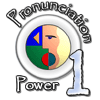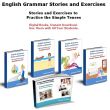EFL Learners - How to Use the Language?
by Pablo
(Colombia)
Dear Diana, I've read your page How to Learn English . It's nice! But, it's really difficult figure out how to do it, if you are an EFL Learner, isn't it?
Could you please provide us with some tips about how to do it? I mean, If I had somebody who I can talk to permanently, it would be easy, but when you are alone in a country where English is not spoken, what could can we do?
I mean, I can read and understand easy English, e.g. TV news, and I can write as I'm doing it right now, but what about speaking? I'm looking forward to hearing your ideas, especially about speaking and also about writing (the output).
I also would like to add that for EFL Learners whose mother tongue is Spanish/French/German, or similar, there are more chances to find an interchange with native or ESL speakers, but, how about for e.g. people whose language is spoken by a minority?
I mean, in on the Internet we have a lot of resources, but I think the spoken part is the real barrier to use the English.
Thank you!
Hi Pablo,
You make some really great points and I would like to address them all. First, I have to say that your writing is excellent. You should be proud of your writing skills. :)
As for the "HOW" regarding "how to learn English" I provide several examples in a 4 part article, How to Study English. It can be found in the "Helpful Articles" area of my site.
You will probably notice that the speaking page has fewer ideas than the rest. This is because it is much harder to practice. So let’s try to work on that now.
The best way is to speak with a native speaker and surround yourself with the language. But like you point out, what happens when this is not an option?
First, you can talk to yourself. I KNOW this sounds stupid but it honestly does work. When you speak to yourself (out loud) you are practicing speaking, just no one is listening to you. That doesn't matter.
What if you make mistakes? You probably will make mistakes but the benefits out-weigh the drawbacks or negative aspects.
Here are some ideas to get you talking to yourself.
If you want you could even get a mirror and talk to your image.
What I love about their interactive site is that you can practice ALL aspects of English. How do you practice speaking? You are given a text to read and you record yourself reading. Then a native English speaker listens to it and reviews it. It is a wonderful way to get feedback for FREE.
Those are my ideas Pablo. I am sure there are many more and I invite people to contribute their thoughts below in a comment.
You are right though; speaking is the really challenging area of English to learn because it is difficult to find people to speak with.
So when no one is around talk to your cat, dog, wall, plant or the mirror. :)
What a great question Pablo. Thanks for asking!
Cheers,
Diana
Comments for EFL Learners - How to Use the Language?
|
||
|
||
|
||
|
||
Still looking? Search the site for exactly what you need using the site search box below.
Happy exploring!
Discover these Amazing ESL Materials!
 |
 |
 |
 |
 |
 |
 |
 |
 |
 |